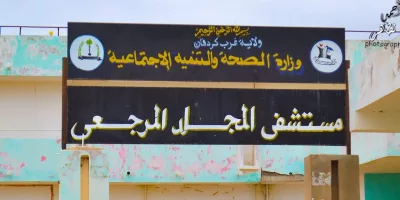Press Release
In a letter to Dr. Litha Musimi Ogana, Egypt’s Special Rapporteur at the African Commission on Human and Peoples’ Rights, the “Committee for Justice” (CFJ) called for a firmer position on Egypt’s human rights situation, emphasizing that the commendation she extended to the Egyptian authorities during the 81st session of the African Commission might not fully reflect the reality.
– Praise without tangible evidence:
In her address at the 81st session of the African Commission on Human and Peoples’ Rights, Egypt’s Special Rapporteur praised Egypt’s efforts to improve human rights, noting the release of 600 detainees by presidential decree in August 2024. She also expressed gratitude to Egyptian President Abdel Fattah el-Sisi for his humanitarian actions, urging a continuation of such efforts and highlighting some significant reforms by Egyptian authorities as steps toward a better national human rights strategy, according to her statement.
– An unrealistic official Egyptian image:
In response, CFJ stated in its letter that the Egyptian authorities have presented an overly positive image of the human rights situation, while in reality, violations against activists and dissidents are escalating. Thousands continue to be detained merely for expressing their views, participating in peaceful demonstrations, or sharing their opinions on social media. The Committee noted that the presidential pardon committee’s work remains limited, excluding many prisoners of conscience who are still held without fair trials.
CFJ highlighted its reports on the number of political and conscience prisoners in Egypt, which now exceed 60,000, including prominent figures such as former presidential candidate Ahmed Tantawi, political activist Yehia Hussein, and economist Abdel Khaleq Farouk. It stressed that these figures are held under conditions that violate international human rights standards, with basic legal rights being denied to them.
– Ongoing violations:
CFJ added that in 2023 alone, over 3,530 human rights violations against political detainees in Egypt were documented. These included arbitrary arrests in 90% of cases, along with 174 instances of enforced disappearances, 106 cases concerning poor detention conditions, and documentation of 36 deaths and 36 cases of torture in detention facilities.
The letter also highlighted that enforced disappearances remain widespread, with individuals taken by security forces without their families being informed of their whereabouts or health status. Often, these individuals face torture or prolonged detention without trial.
– Continued suppression of civil society in Egypt:
CFJ noted that, in addition to these violations, civil society and human rights organizations face repression, with organizations shut down, staff arrested, travel restricted, and ongoing harassment. It described these practices as part of a systematic policy aimed at silencing dissenting voices and suppressing efforts to defend human rights.
As an entity focused on monitoring the human rights situation, CFJ urged the African Commission on Human and Peoples’ Rights to adopt a clear and firm stance on these violations. CFJ called on Dr. Musimi Ogana, Egypt’s Special Rapporteur, to elevate these issues within the Commission’s agenda and to take concrete steps to push Egyptian authorities toward fulfilling their regional and international commitments. These steps should include ensuring respect for fundamental human rights, such as the right to a fair trial, halting arbitrary detentions, preventing enforced disappearances, and stopping the torture of detainees, as well as providing adequate healthcare for political detainees.






